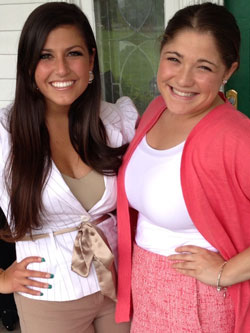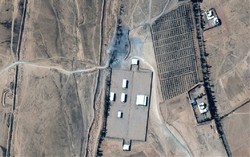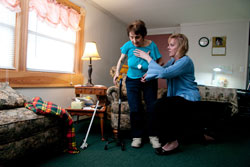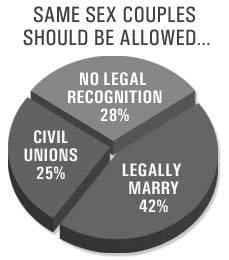 The Eagleton Institute of Politics at Rutgers hosted a program called “The Center for Woman in Politics” where students Jacquielyn Corsentino and Leonor Torres represented the University from June 6 to June 11.
The Eagleton Institute of Politics at Rutgers hosted a program called “The Center for Woman in Politics” where students Jacquielyn Corsentino and Leonor Torres represented the University from June 6 to June 11.
Corsentino, a junior political science major, was selected by Dr. Joseph Patten, chair of the Political Science and Sociology Department. Torres, a senior political science major, was selected by Counselor Christopher McKittrick of the Psychology Department.
Corsentino and Torres both said how they were honored to be picked for a program with over 2000 applicants and only 37 were chosen to attend.
The program itself started in 1991 when Debbie Walsh, the founder, and Sasha Petterson, the program liaison, both realized that New Jersey needed to have more women involved with the government in the Garden State.
Since the program opening, the institution has had tremendous success with 70 percent of the women who participate going on to be elected for the offices they ran for.
The program has spread throughout the United States with the same values and success as it has had in New Jersey. There is even rumor of a nation wide conference to be held, in order to get the views of women from different areas and corners of the American map, according to Corsentino.
The program success, however, comes from its structure. Every day a new goal is set and accomplished, fulfilling the overall aim of the program to help young women become better public speakers, participate in politics, network with other established women, and help build a resume. These activities aim to help bring the women who participate success in future government jobs.
One of the activities both Corsentino and Torres participated in was the introductions of lead women from the program.
Corsentino said, “This introduction technique really helped me overcome my fear of public speaking and I had the honor of introducing Diana Reyes.”
Reyes is a New York City Councilwoman and the first Dominican Republic woman to be elected to the position.
Torres introduced Stephanie Rivera, a senior at Rutgers University and the youngest candidate to run for the Board of Education of New Brunswick.
Corsentino and Torres both exclaimed how impressed they were with both of these women and felt grateful to speak with them. Theywent right to work of using their new leadership skills from the program upon returning home.
Torres had secured an internship with the Governor at the State House. She said at the start of her internship that she felt out of the loop, especially being the only female intern.
However, she commented, “Attending the conference gave me the courage to raise my hand and give my opinion, not to be intimidated by the other men in the committee.
Corsentino said, “Attending NEW (National Education for Women’s Leadership) leadership was such an amazing opportunity! I am honored and humbled to have been given the chance to attend such a prestigious program. I met influential women, heard their stories, and inspire to follow in their footsteps.”
She continued, “I was enlightened on the lack of female representation and acquired knowledge on the leading women who paved the path for little girls today. I made 35 new friends, all people that I admire who have the same interests as myself.”
“NEW leadership allowed me to break out of my comfort zone, let my voice be heard, and encouraged me to advocate for issues I am passionate about. Although NEW leadership was only for six days in the beginning of June, the people and experience I had will last forever.” Coresentino concluded.
Both girls plan to attend the Washington D.C. program in the Spring, coordinated by Patten.
Patten expressed his feelings on the program, “ I am really proud of Corsentino and Torres for participating and thriving in the Women and Leadership Institute this summer. The organization has a real record of success and across the board, we desperately need more women in leadership positions.”
Patten continued, “Today 82 percent of U.S. House members and 80 percent of U.S. Senators are men. Imagine how different our legislative process would be if 80 percent of its members were women? Our most important representative body, and all social and political institutions always perform better when members truly represent the interests of all members of our society.”
As women both influenced by the journey, Corsentino and Torres want to become more active in the political community. They plan to reach out to Dr. Johanna Foster, Professor in the Sociology Department, who currently leads the University’s gender studies program. Students can now earn a minor in gender studies and participate in club activities to help raise awareness on gender equality.
PHOTO COURTESY of Jacquelyn Corsentino



